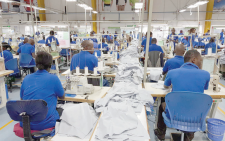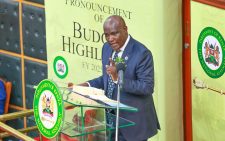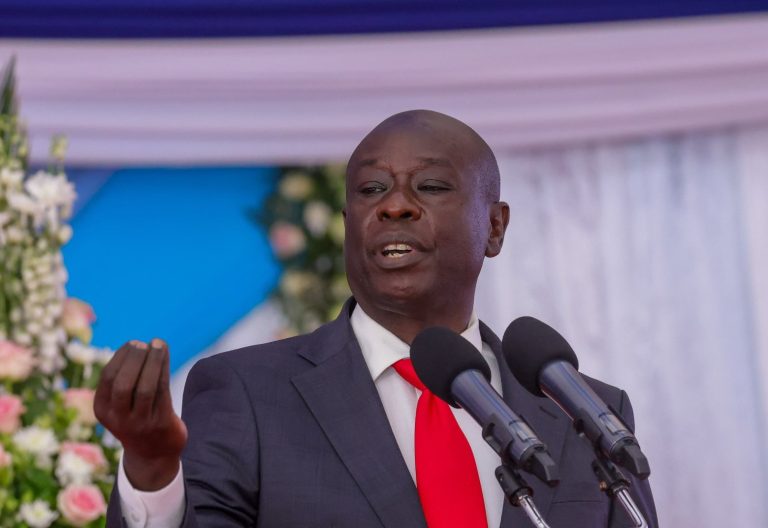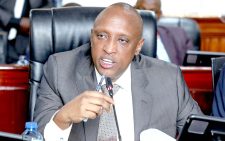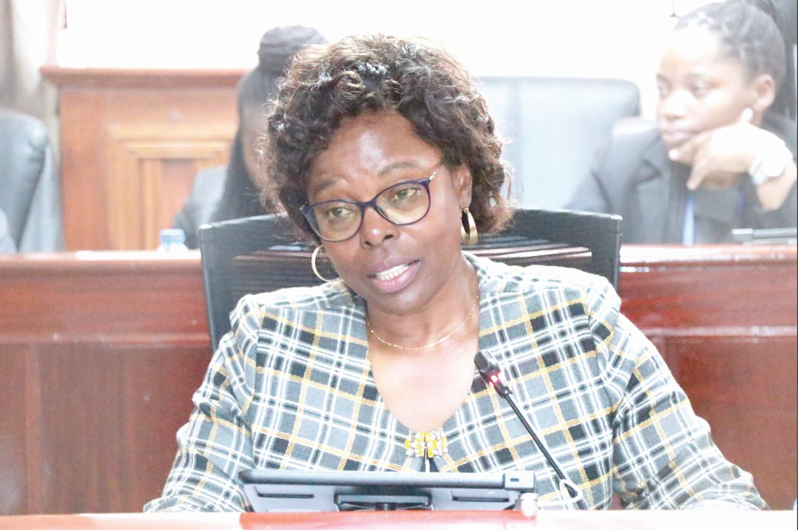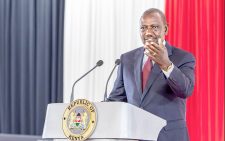Jobs, finance, climate change feature at Africa growth forum
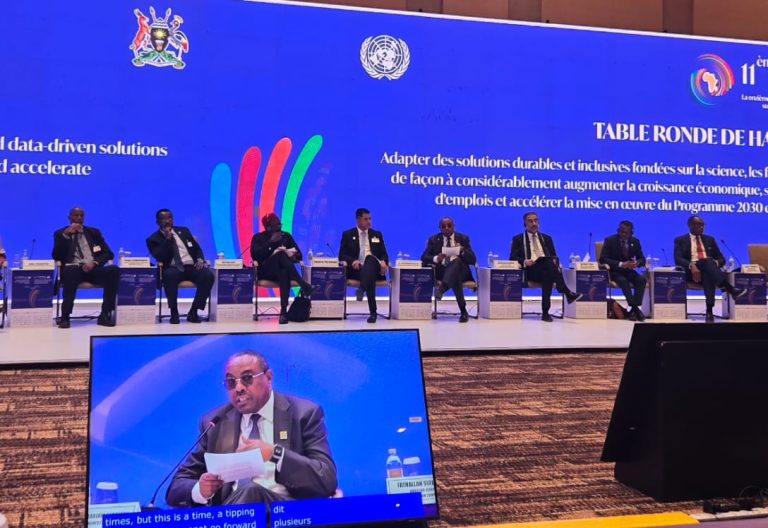
Africa’s most important social and economic development forum has noted that youth unemployment, climate justice and financial constraints pose the greatest challenges to Africa’s growth.
Organised by the United Nations Economic Commission for Africa (UNECA), or ECA as it is commonly known, the eleventh session of the Africa Regional Forum on Sustainable Development (ARFSD), opened on Sunday in Kampala, Uganda, with reflections on the Sustainable Development Goals (SDGs).
Financing Africa’s development, the forum heard, requires a multifaceted approach, including boosting domestic resource mobilisation, accessing external finance, and addressing the continent’s infrastructure needs and climate finance gaps, with a focus on sustainable and inclusive growth.
“Our task is both urgent and clear. We are called upon to assert Africa’s leadership in delivering the SDGs. And at the core of this ambition lies a simple truth – Africa’s future depends on our ability to generate sustainable and inclusive growth that creates decent jobs for all,” said UNECA Executive Secretary Claver Gatete.
Established in 1958 by the UN Economic and Social Council (ECOSOC) as one of the UN’s five regional commissions, ECA’s institutional mandate is to promote the economic and social development of its 54 member states, foster intraregional integration and promote international cooperation for Africa’s development.
In a speech at the ARFSD Africa Leadership Forum read by the Deputy Executive Secretary (Programme Support) Antonio Pedro, the UNECA chief echoed concerns over the high unemployment levels in sub-Saharan Africa, with more than 76 million young people across the continent neither in employment, education nor training.
“With over 10 to 12 million young Africans entering the workforce annually, but only 3 million formal jobs created each year, the gap is vast and growing. These figures speak to a systematic failure – one that demands a systemic response,” Gatete noted.
Primary concern
He said unemployment, particularly among youth, is not merely an economic concern, but a threat to peace, social cohesion, and ultimately to the legitimacy of our development model, adding that “without hope, stability weakens, and without stability, development becomes impossible”.
Gatete said that when African leaders place jobs at the centre of policy agendas, when they make employment creation not a by-product of growth but its primary driver, they pave the way for inclusive prosperity, political stability, and economic transformation and the impacts of climate change and global warming.
According to the International Labour Organisation (ILO), climate change and environmental degradation pose significant challenges to economic growth and employment today, and risks will be greater in the medium-to long-term.
By contrast, if properly managed, ILO explains, climate action can lead to more and better jobs, and the ARFSD explored this dynamic. Both adaptation to climate change and measures to mitigate greenhouse gas emissions offer opportunities to create new jobs, while securing existing ones.
A transition to low-carbon, greener economy will imply the creation of new jobs in environmentally friendly production processes and outputs, whereas other jobs will be at risk, in particular in those sectors with fewer options for a transition towards more sustainable ways of production.
With two days at the sixth Africa Climate Talks and SDGs Forum dedicated to the most critical challenges facing humanity and planet today – climate change, biodiversity loss and pollution – the African development forum reflected on the first Earth conference.
This was the UN Framework Convention on Climate Change (UNFCC) 1992 World Summit on Sustainable Development, also referred to as the Rio Earth Summit after the Brazilian city where the first climate conference of parties (COP) was held.
The pioneer conference captured the commonality of global environmental concerns and the spirit of shared responsibility for the Earth’s future.
Unfortunately for Africa, the Rio principle of common but differentiated responsibility and respective capabilities has, however, not been honoured by the global north, a sphere most responsible for the climate crisis, and an issue currently under litigation at the International Court of Justice.
Climate talks intensely discussed the outcomes of COP29 in Baku, Azerbaijan, focusing on advancing environmental sustainability, climate finance, carbon markets and energy access. Despite the continent’s relatively low contribution to global cumulative greenhouse gas emissions, Africa is especially vulnerable to the adverse effects of climate change.
These vulnerabilities are reflected in agricultural productivity loss, disruptions to production and supply chains, and losses of revenue from trade, in particular for countries with economies heavily dependent on climate-sensitive sectors, such as exports of agricultural commodities.
The urgent need to adapt to climate change and mitigate its effects is clear. Unfortunately, Africa has severely limited access to climate finance. In 2022, the region received only 2 per cent of the global investment in clean energy.
“Africa does not need charity. Africa needs access to technology, finance, fair trade and opportunity. And it needs leadership committed to unleashing the full potential of its people,” the UNECA Executive Secretary told the African Leadership Forum.
This, he said, calls for “a new social compact”, one rooted in dignity, inclusion, and shared opportunity.
“We must ensure that women and youth, who are often sidelined, are placed at the heart of labour markets, enterprise development and policy design. Empowering them is not charity – it is a necessity,” he emphasised.
Driving development
Gatete said this vision requires leadership – at all levels and across all sectors. Governments must champion policies that expand access to education, infrastructure, digital connectivity and clean energy, especially for undeserved communities.
“The private sector must invest not only in profit but purpose. And civil society must be empowered to hold all actors accountable for delivering real, measurable progress,” he said.
It was a view affirmed by World Bank President Ajay Banga last week when he noted that during the bank’s past two years of reform, it has focused on its core mandate of driving development and reducing poverty. According to him, the resources needed to achieve this require the private sector to be an active player and key to this new approach is making job creation an explicit target, as highlighted at ARFSD in Kampala.
Banga said jobs are the most effective way to build self-sufficient economies, reduce humanitarian need, and create demand for goods, noting that the said jobs also strengthen global stability by addressing the root causes of crime, fragility and mass migration – the bane of African development affecting the majority of its population, the young people.
“Our ultimate goal is to help countries build dynamic private sectors that convert growth into local jobs, not by shifting work from developed countries, but by unlocking opportunity where people already live. That means strengthening sectors like energy, infrastructure, agribusiness, health care, tourism and manufacturing in mineral-rich nations for a more vibrant, home-grown economy,” the World Bank chief said.
The Africa development forum heard that the continent cannot achieve its ambitions by relying solely on exporting raw commodities. Structural transformation must be accelerated.
Gatete noted that we must shift from resource extraction to value addition, from fragmentation to integration, from vulnerability to resilience.
“That’s why the work underway between the Democratic Republic of the Congo (DRC) and Zambia to establish transboundary special economic zones for electric vehicle batteries is so critical,” he observed, adding that it exemplifies how Africa can turn its mineral wealth – cobalt, lithium, manganese – into a source of regional industrialisation and global competitiveness.
